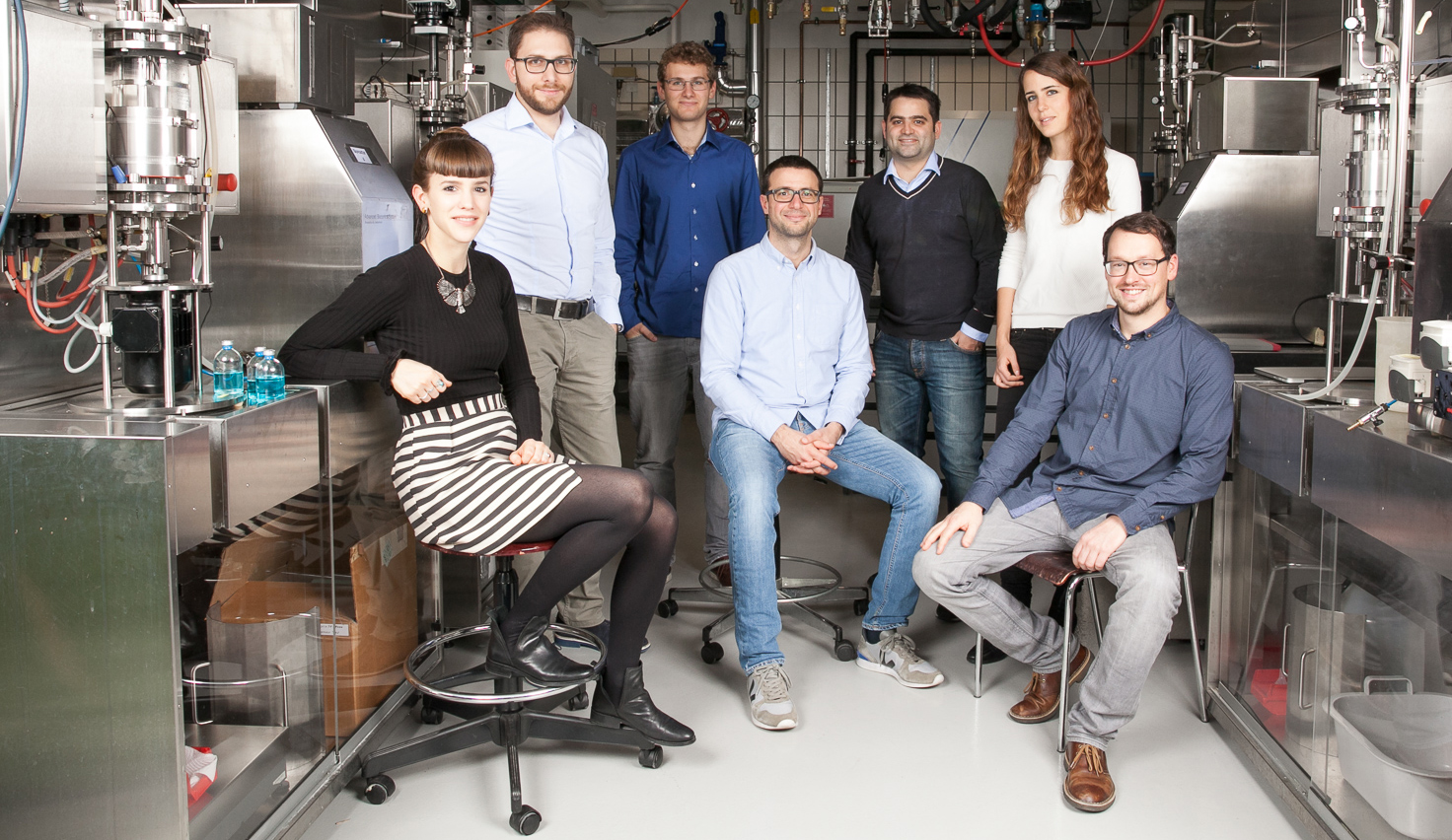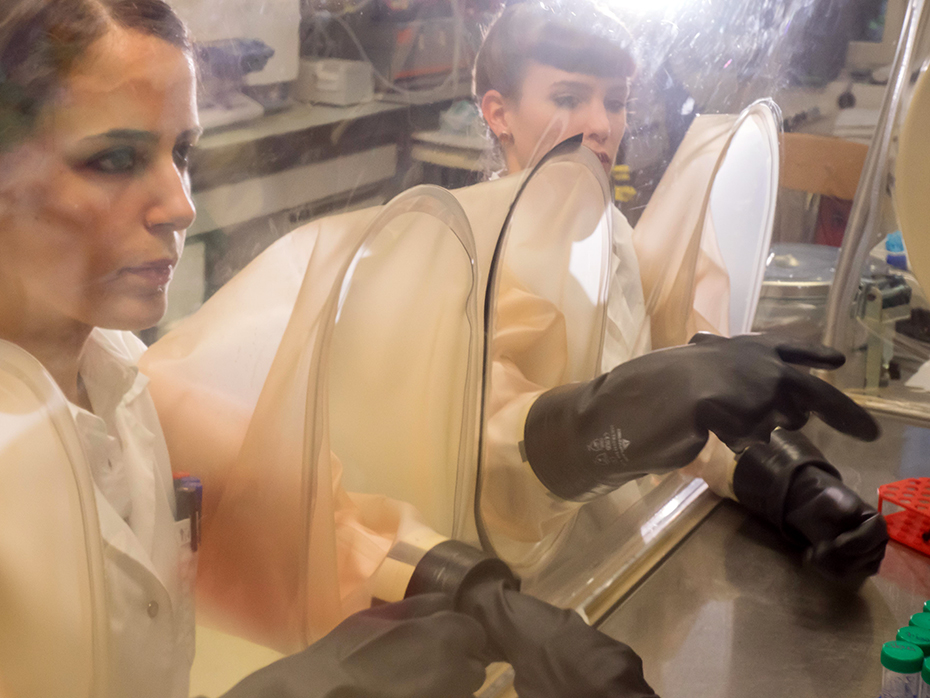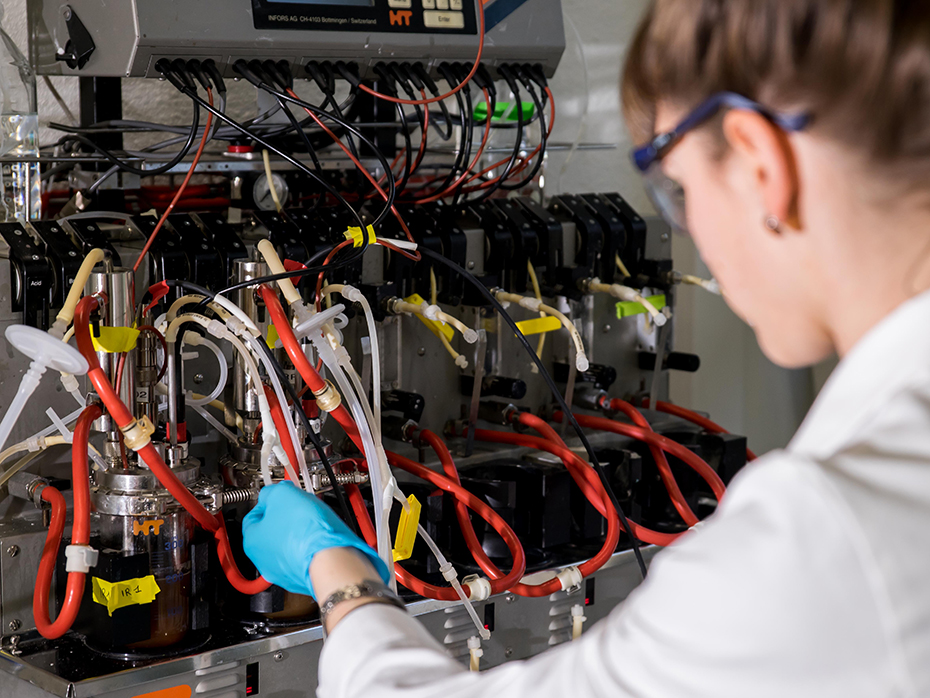Healing intestinal diseases with a bacterial mix
When the bacterial ecosystem in the intestine is out of balance, there often is no other remedy than a faecal microbiota transplant. Due to the risks of this procedure, researchers from the ETH spin-off PharmaBiome are developing a safe alternative.

Around 500 different types of bacteria live in our intestines. They help us to digest food by breaking down large molecules such as dietary fibres into smaller units that enter the bloodstream and provide our body with nutrients and energy. Together, these microorganisms form a complex and finely tuned ecosystem, in which each type of bacteria plays a specific role.
Researchers from the ETH spin-off PharmaBiome have set out to develop a bacterial mix consisting of less than a dozen bacterial strains that represent a basic framework of this ecosystem. The mix may one day help people whose intestinal ecosystem is imbalanced and causes disease.
Transplants come with risks
This is the case, for example, when a person suffers an infection with Clostridium difficile, a type of bacteria that produces a toxin that damages the intestinal walls. Patients suffer from diarrhoea, weight loss and, in extreme cases, internal bleeding. Antibiotics relieve symptoms, but do not always succeed in entirely eradicating the pathogen. As a result the illness often relapses, leaving no other option except a faecal microbiota transplant. In this procedure stool from a healthy donor, normally a relative, is introduced into the intestine of the patient. It serves as a “starter culture” to restore the intestinal flora (the microbiome) to its proper state, enabling it to again keep the pathogen in check.
“Such faecal transplants, however, are only used as last resort, because of their inherent risk,” says Tomas de Wouters, a microbiologist and CEO of PharmaBiome. The main problem is that no one can predict how the intestinal flora from a donor will develop in the recipient’s intestine. “Even in healthy donors, the microbiome not only contains good bacteria, but potential pathogens as well,” explains de Wouters. “While a healthy intestinal ecosystem can keep potentially harmful bacteria in check, these bacteria may be able to gain the upper hand in a person whose intestine is imbalanced, which would have serious consequences.”
Oxygen-free culturing
This is why de Wouters and his team at PharmaBiome are developing a standardised, controlled – and therefore safe – product that can be given to patients without the risks of a faecal transplant. This is easier said than done, however, as the intestinal flora is very difficult to culture as a whole outside the human body. Isolating and studying the specific types of bacteria is complex and labour intensive, especially since most intestinal bacteria have adapted to living in an oxygen-free environment and cannot survive when exposed to air. “We work in an anaerobic chamber in our laboratory,” says de Wouters. “This is very cumbersome, and also explains why microbiologists have only isolated and studied a fraction of all the different types of intestinal bacteria so far.”
The researchers at PharmaBiome looked for key types of bacteria that “hold together” the complex intestinal ecosystem. They isolated bacteria from stool samples taken from healthy volunteers and studied the conditions under which they can be cultivated and which individual biochemical roles they play in the intestinal network. They also succeeded in cultivating strains that could not previously be cultivated.
In addition, the researchers developed a mixture of less than a dozen bacterial strains that carry out the basic processes of the intestinal ecosystem – a kind of minimal intestinal flora. They also developed a process, which they have patented, to reliably produce large quantities of this minimal intestinal flora.
Aiming for clinical trials
The researchers are currently testing the cultivated bacterial mix in the laboratory. Experiments on mice with disturbed intestinal flora showed that the mixture was able to restore the intestinal microbial balance, even more effectively than with a faecal microbiota transplant. “We now aim to test the safety and tolerability of our mix in patients as soon as possible. Therefore we’re currently seeking a partner company interested in conducting these clinical trials with us,” explains de Wouters.
De Wouters stresses that potential applications for artificial intestinal floras from the PharmaBiome lab are not limited to Clostridium difficile infections; chronic inflammatory bowel diseases such as Crohn’s disease and ulcerative colitis, as well as intestinal tumours, also require restoring balance to an ailing intestinal ecosystem. Further applications may include chronic metabolic diseases, such as obesity, fatty liver, and diabetes; studies have shown links between these diseases and the intestinal flora.
As the spin-off develops products and identifies possible applications, it is benefiting from ETH biotechnologists and their expertise on isolation and cultivation of intestinal bacteria, as well as the gastrointestinal specialists from University Hospital Zurich. “We work very closely with the Department of Gastroenterology. The department director is the co-founder of our company,” says de Wouters. “This means that our development is very close to the patients.”


